The Skin I Live In
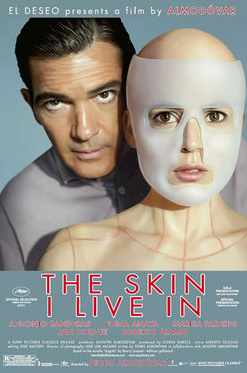
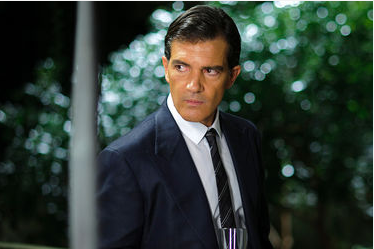 In a brilliant bit of casting, Antonio Banderas plays the "mad doctor" role. It is brilliant, in that when we initially see Banderas, we are drawn to him, and actually like him. But then, the movie peels apart his personality, little by little, and we begin to become fascinated. It certainly helps that this is probably Benderas' most commanding performance in a long time. He plays a surgeon whose specialty is facial restoration. As the film opens, he has perfected his research into synthetic skin that will revolutionize the treatment of burn victims. Of course, we soon learn that it's not entirely synthetic. It is a combination of human and pig skin created through unethical science. Banderas' character is obsessed with the human skin and form. If the many paintings hanging in his luxurious mansion home depicting nude bodies don't tip you off, than his other obsession will.
In a brilliant bit of casting, Antonio Banderas plays the "mad doctor" role. It is brilliant, in that when we initially see Banderas, we are drawn to him, and actually like him. But then, the movie peels apart his personality, little by little, and we begin to become fascinated. It certainly helps that this is probably Benderas' most commanding performance in a long time. He plays a surgeon whose specialty is facial restoration. As the film opens, he has perfected his research into synthetic skin that will revolutionize the treatment of burn victims. Of course, we soon learn that it's not entirely synthetic. It is a combination of human and pig skin created through unethical science. Banderas' character is obsessed with the human skin and form. If the many paintings hanging in his luxurious mansion home depicting nude bodies don't tip you off, than his other obsession will.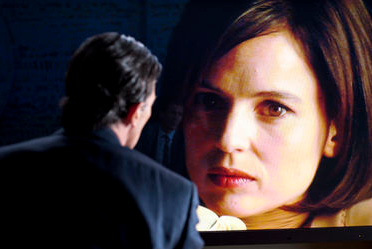 His "other obsession"? Well, that would be the young woman he keeps imprisoned in his home, Vera (Elena Anaya). She wears a flesh-colored bodysuit, is locked away in a secret room in the house which is under constant video camera watch, and seems to act as a human guinea pig for the doctor to perform and test his skin experiments on. We can tell by the way that the doctor watches his prisoner on a giant big screen monitor that he has a fascination with her, something that is tied into something other than scientific research. The doctor's housekeeper (Marisa Paredes) offers a clue when she reveals that he has given Vera a new face through plastic surgery - one which greatly resembles his dead wife.
His "other obsession"? Well, that would be the young woman he keeps imprisoned in his home, Vera (Elena Anaya). She wears a flesh-colored bodysuit, is locked away in a secret room in the house which is under constant video camera watch, and seems to act as a human guinea pig for the doctor to perform and test his skin experiments on. We can tell by the way that the doctor watches his prisoner on a giant big screen monitor that he has a fascination with her, something that is tied into something other than scientific research. The doctor's housekeeper (Marisa Paredes) offers a clue when she reveals that he has given Vera a new face through plastic surgery - one which greatly resembles his dead wife. This is all we learn for at least the first half of the movie. The true relationship between the doctor and Vera, the genesis of his experiments, and even the role that the housekeeper plays in it all is eventually revealed quite slowly and with grace. To reveal any more information of the plot would cheapen these revelations, so I will say no more. I will say that The Skin I Live In does not treat its bizarre subject matter with total horror and dread (though there are certainly moments of that), but rather with bizarre fascination. We get the sense that Almodovar is just as interested in these characters as we are watching them. The movie is more about the relationships and the motivations, than it is about shock value. We may feel uncomfortable watching it, but we're also enthralled and want to know more.
This is all we learn for at least the first half of the movie. The true relationship between the doctor and Vera, the genesis of his experiments, and even the role that the housekeeper plays in it all is eventually revealed quite slowly and with grace. To reveal any more information of the plot would cheapen these revelations, so I will say no more. I will say that The Skin I Live In does not treat its bizarre subject matter with total horror and dread (though there are certainly moments of that), but rather with bizarre fascination. We get the sense that Almodovar is just as interested in these characters as we are watching them. The movie is more about the relationships and the motivations, than it is about shock value. We may feel uncomfortable watching it, but we're also enthralled and want to know more.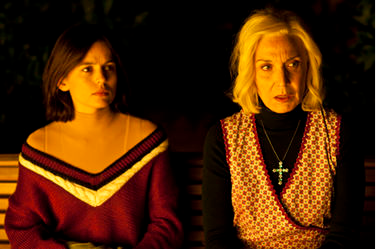 The movie is a foreign film, in Spanish with English subtitles. This might hurt the film at the box office, but I hope it doesn't. The thrills and the ideas explored here are as scary as any haunted house or mad slasher Hollywood has thrown at us this past year. I was sucked in by the way the movie rewarded my fascination with these characters, and how it actually managed to pay off that fascination. What worked less for me is how the movie jumps around to different points in time. In adapting the novel "Tarantula" by Thierry Jonquet, Almodovar stumbles a little with a somewhat graceless out of sequence narrative. It's not that it's gimmicky or even unnecessary, it simply did not work as well as I thought it should.
The movie is a foreign film, in Spanish with English subtitles. This might hurt the film at the box office, but I hope it doesn't. The thrills and the ideas explored here are as scary as any haunted house or mad slasher Hollywood has thrown at us this past year. I was sucked in by the way the movie rewarded my fascination with these characters, and how it actually managed to pay off that fascination. What worked less for me is how the movie jumps around to different points in time. In adapting the novel "Tarantula" by Thierry Jonquet, Almodovar stumbles a little with a somewhat graceless out of sequence narrative. It's not that it's gimmicky or even unnecessary, it simply did not work as well as I thought it should.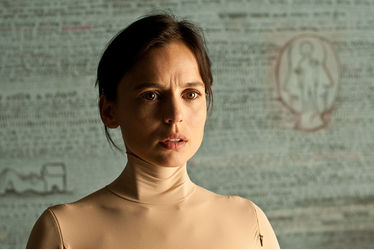
See the movie times in your area or buy the DVD at Amazon.com!






0 Comments:
Post a Comment
<< Home